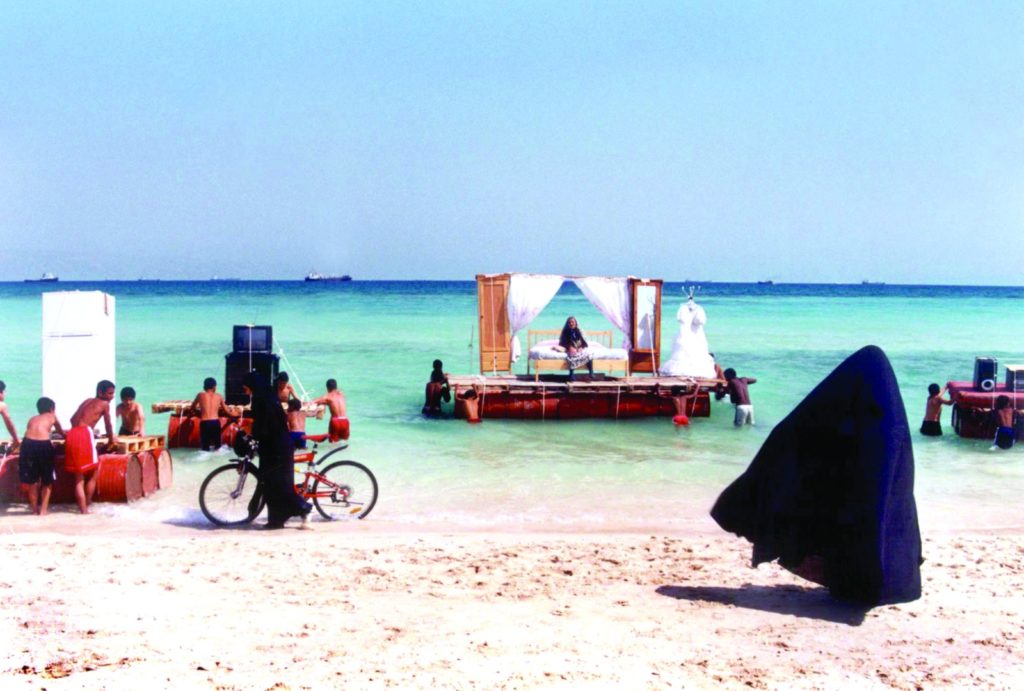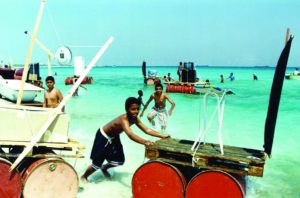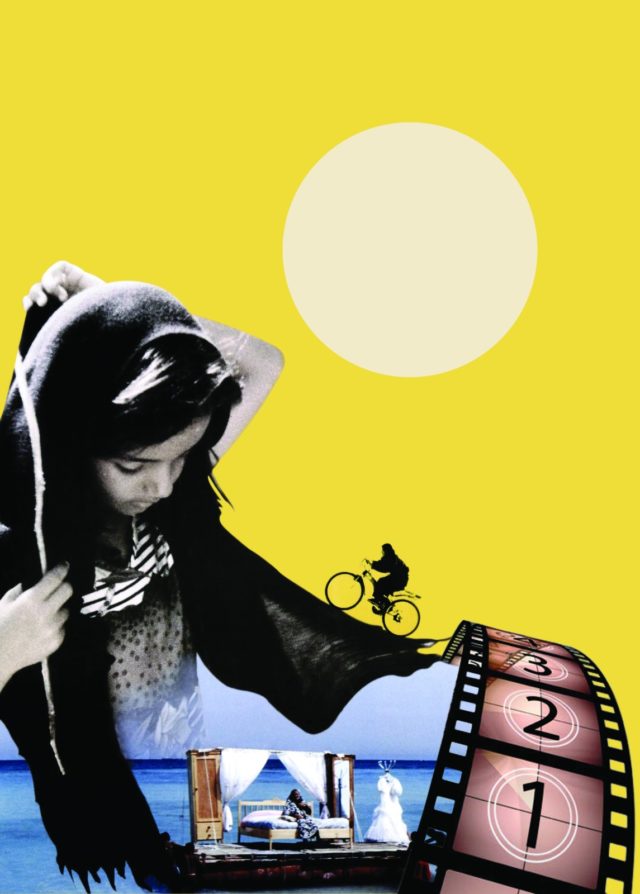Iranian Cinema took its rightful place in world cinema by ‘breaking of the shell’ nourished by so many prominent personalities, religious rituals that society considered indispensable and most importantly never-ending ideological conflicts. I said ‘its rightful place’, because Iranian Cinema has never trained its sights on proving itself or preparing for cinematography award ceremonies. On the contrary, cinema was a means to show the audience the grief and joy of the society shortly in any part of a documentary. But there are limitations of this goal determined by certain lines, in which the values of the communal society are completely at the forefront. The most apparent sides of these limits are those related to religion.

Before 1979, Iranian Cinema had proved itself with beautiful and valuable films which can not be denied, but could not reach to the cinema level of that period. Despite his short life and the fact that he made the only film, Furug Ferruhzad is undoubtedly the name who enriched Iranian cinema of that period. Furug, the poet and director of the Shah period, bravely criticized the Shah and repeatedly expressed the discrimination against women. His poetics is the reflection of Omar Hayyam’s way in the 20th century. Another important name of this period is Dariush Mehrjui, who directed the film ‘The Cow’. Mehrjui’s film ‘The Cow’ is said to have allowed the cinema to endure in Iran after the revolution. Even Khomeini watched the film and liked it very much. Iranian cinema has improved itself by practising on its self-values from the time of Khomeini till today who did not forbid the cinema but set bounds to it. Some of the famous Iranian directors have recently been awarded even an Oscar. Directors Abbas Kiarostami, Asghar Farhadi, Muhsin Mahmelbaf and many others are some of the precious names that represent Iranian cinema today. The recent contribution of women to the Iranian cinema is also considerable. This contribution sometimes shows itself in the form of film directors and sometimes film actresses. The Iranian female director Marziye Mashkini has also proved herself in this field. She carried the troubles of women in Iran to films and fulfilled her duty as a woman. Marziye Mashkini’s ‘The Day I Became a Woman’ is a very good film that describes the mentioned arguments.

The film, scripted by the famous Iranian director Muhsin Mahmelbaf and directed by his wife Marziye Mashkini, was shot in 2000 as a comedy-drama. The film consists of three parts. Like its name, the film is about women. Three main periods that are important in women’s life in Iranian society, different ages and characters are described. As other previous directors Mashkin also brings her inner rebel into the cinema and criticizes the beliefs beyond fanaticism that women faced in Iranian society. In the first episode, we meet a little girl named Eve. She is the main character. Eve’s mother and grandmother tell Eve that she is now 9 years old, that she is a woman, and can not go out to play games, even she should cover her head. Since Eve is still a child, she can not understand what is said and wants to go on playing. Eve is little, but smart. She convinces her mother by saying she was born in afternoon and she has time until noon. But there is a problem.. How will she know the time if she does not have whatch with her? Grandmother’s solution is interesting. She gives a small stick to Eve and says that she should come home when the shadow of this stick disappears. Eve will take you to a very different way of thinking with the stick in one hand, lollipop in the other hand and falling black headscarf and you will find scenes familiar to your life in the film. In the second part, there is a character Huri describing woman’s youth and marriage period. Without her husband’s consent she cycles and attends ladies’ cycling race. The bike riding scenes of Huri and other women seem wonderful. You’ll get tired while whatching them cycling with great with great enthusiasm against eveyone and everything, as if they will never stop.

Huri rides all the way without considering the threats of her husband and the elder members of the family following her on horses. Her husband, who says, ‘She will quit this devilish thing or I will divorce’, does what he says and leaves her because she does not get off. But, unfortunately, her older brothers catch her. In this part, Mashkini presents to the audience the troubles women experienced in the most important periods in a different way. In the third and last part, women’s old age period is presented in a funny way. An old woman Hora receives a big inheritance. The ambition she shows to buy houseware that she could never get in her life at the seaside she came by plane, the list she made with colorful strings on her fingers, the children who carry the things she bought to the seaside… are just a few of the meaningful stages of the movie. Plenty of things at the seaside and the old woman’s ambition to buy more and more are expressive as well. Because, regardless of age people can be enslaved by their different ambitions. This old woman named Hora also makes a fool of herself by shopping madly with the thought of ‘getting pleasure out of things in her recent demises she could not get through her life ‘. By the scene where two ladies on bikes come to the old woman and steal her things and little Eve whatches them behind Hora, Mashkini brings together these three characters in this final stage and makes a beautiful final.
Author: Asyam



